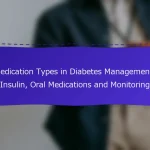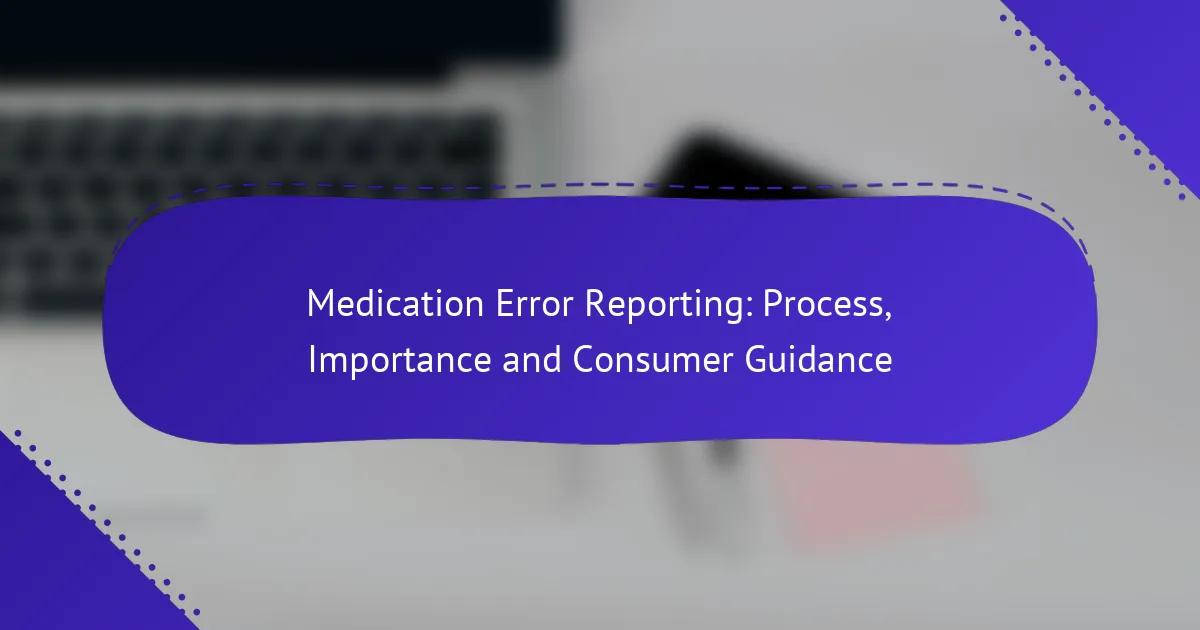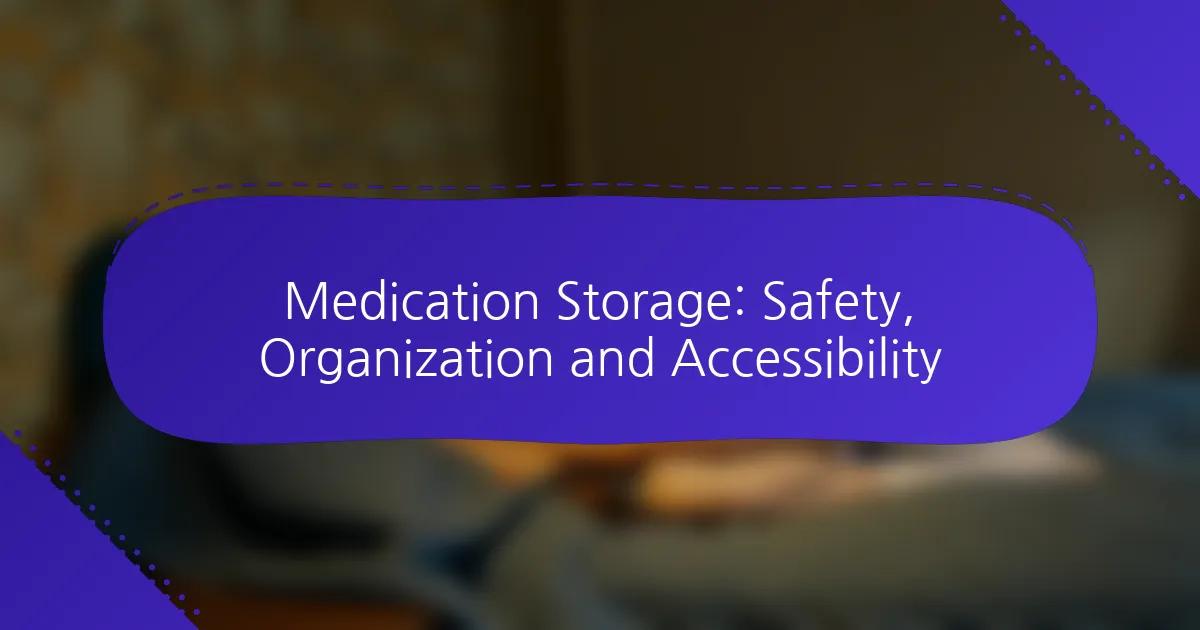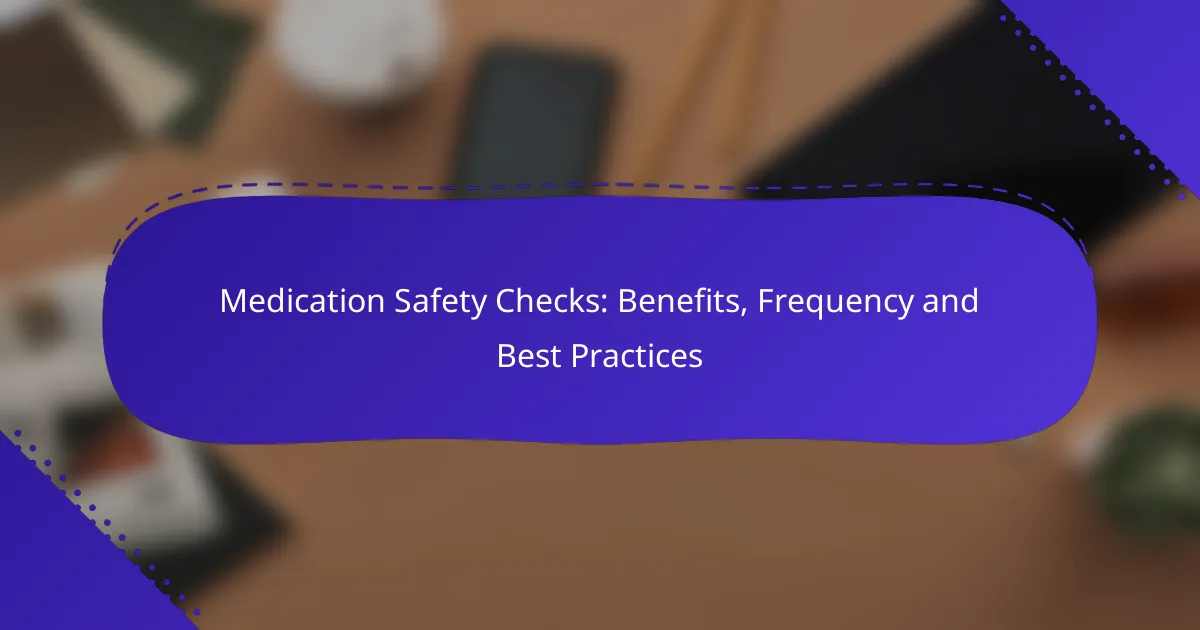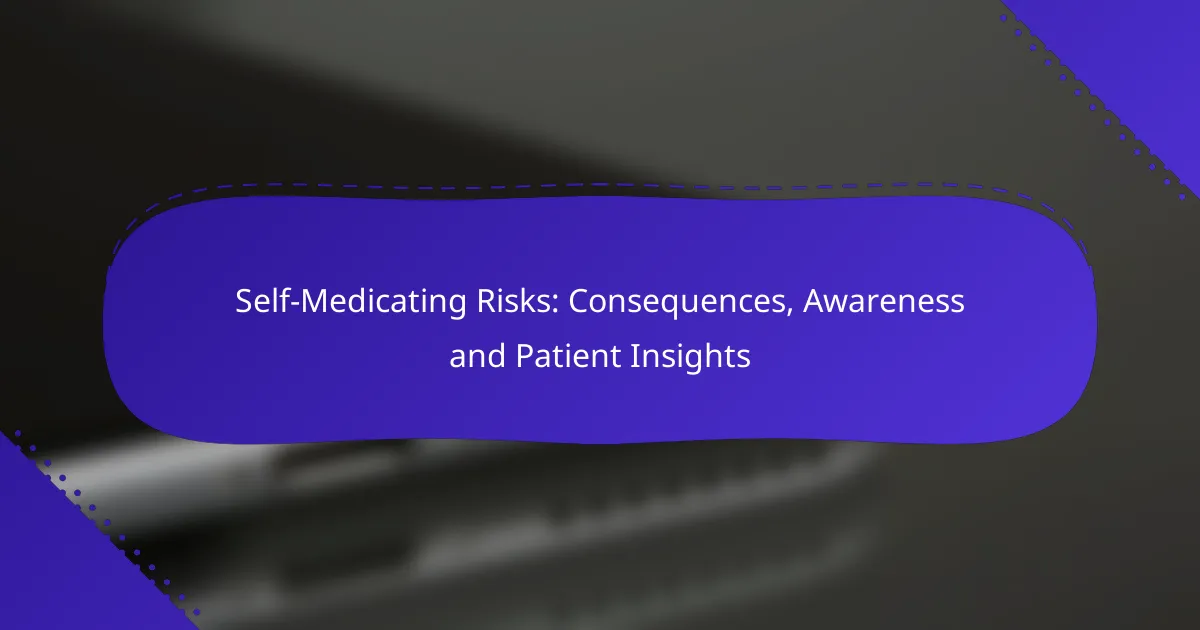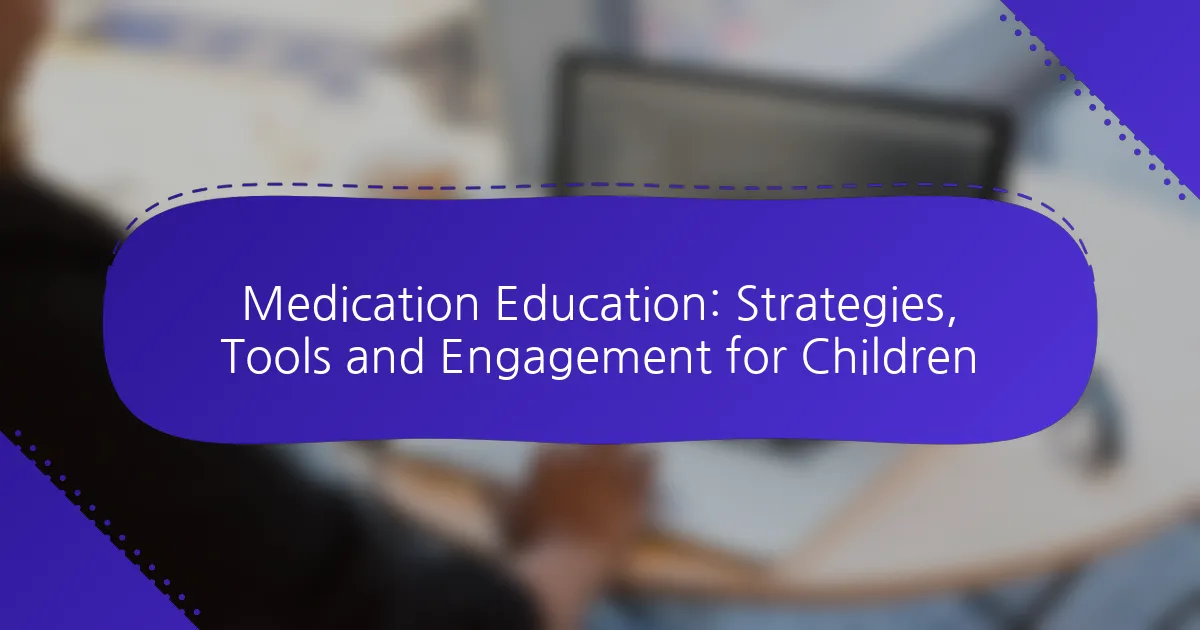Pranešimas apie vaistų klaidas yra esminis procesas, užtikrinantis pacientų saugumą ir gerovę. Teisingai identifikuojant ir dokumentuojant klaidas, sveikatos priežiūros sistemos gali užkirsti kelią nepageidaujamoms vaistų reakcijoms ir pagerinti bendrą pacientų priežiūrą. Šis struktūrizuotas požiūris padeda efektyviai spręsti problemas ir sumažinti riziką sveikatai.
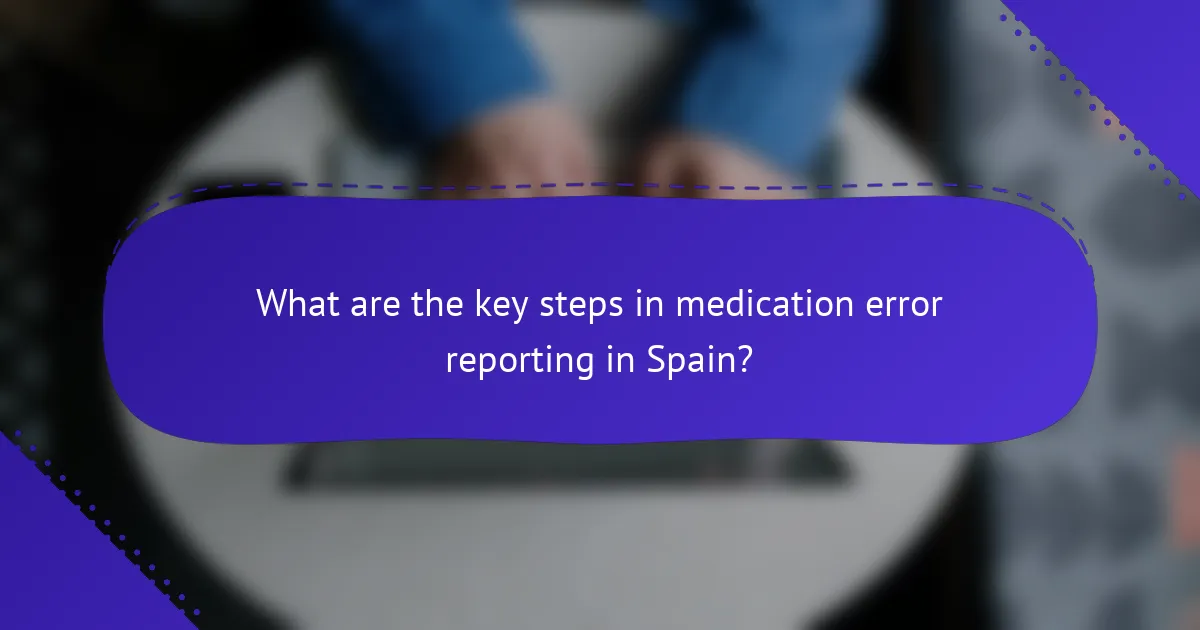
What are the key steps in medication error reporting in Spain?
The key steps in medication error reporting in Spain include identifying the error, documenting it thoroughly, utilizing appropriate reporting channels, and following up on the incident. This structured approach ensures that errors are addressed and mitigated effectively, enhancing patient safety.
Identification of medication errors
Identifying medication errors involves recognizing any mistakes in the prescribing, dispensing, or administration of drugs. Common types of errors include incorrect dosages, wrong medications, or administration routes. Healthcare professionals should be vigilant and report any discrepancies immediately to prevent harm.
Documentation process
The documentation process requires detailed recording of the medication error, including the circumstances surrounding it, the individuals involved, and any patient outcomes. Accurate documentation is crucial for analyzing the error and implementing corrective measures. Use standardized forms or electronic systems to ensure consistency and clarity in reporting.
Reporting channels
In Spain, medication errors can be reported through various channels, including hospital reporting systems, regional pharmacovigilance centers, and the Spanish Agency of Medicines and Medical Devices (AEMPS). Healthcare professionals should familiarize themselves with these channels to ensure timely and effective reporting. Utilizing the correct channel helps in gathering data for improving medication safety.
Follow-up procedures
Follow-up procedures involve reviewing the reported medication error to determine its cause and implementing strategies to prevent recurrence. This may include staff training, revising protocols, or enhancing communication among healthcare teams. Regular follow-ups are essential to foster a culture of safety and continuous improvement in medication management.
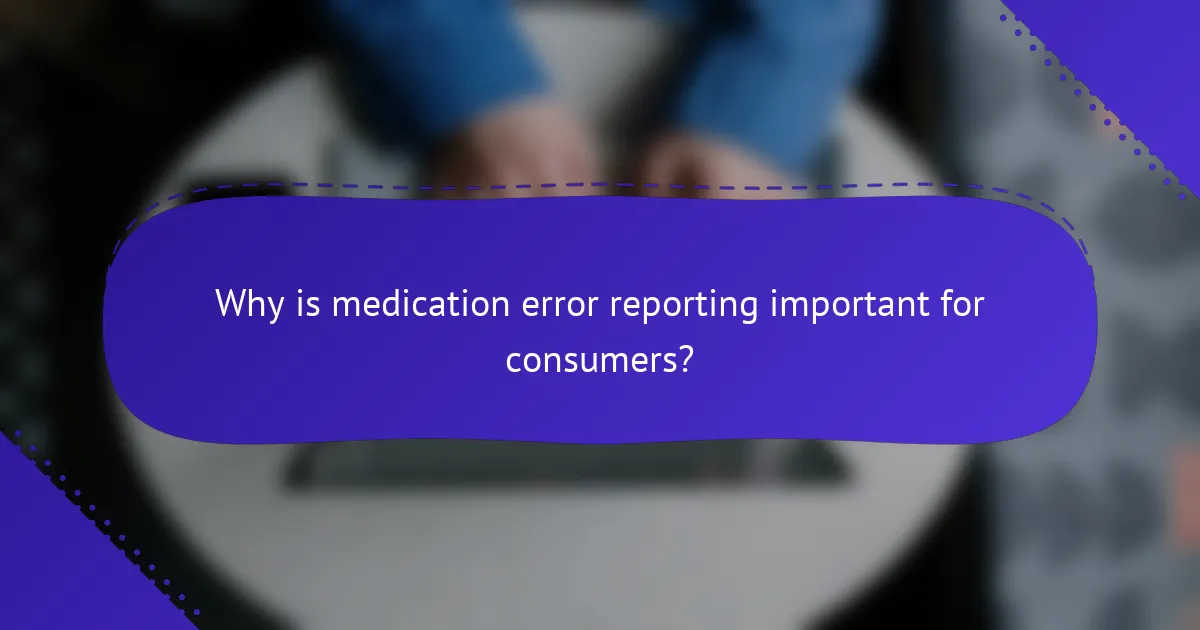
Why is medication error reporting important for consumers?
Medication error reporting is crucial for consumers as it directly contributes to their safety and well-being. By identifying and addressing errors, healthcare systems can prevent adverse drug events and enhance overall patient care.
Enhances patient safety
Reporting medication errors plays a vital role in enhancing patient safety. When errors are documented, healthcare providers can analyze trends and identify common issues, allowing them to implement corrective measures. For instance, if a particular medication is frequently misprescribed, additional training can be provided to staff to mitigate risks.
Consumers benefit from improved safety protocols that arise from these reports, leading to a reduction in medication-related incidents. This proactive approach fosters a safer healthcare environment for everyone.
Improves healthcare quality
Medication error reporting significantly contributes to improving the quality of healthcare services. By systematically collecting and reviewing error data, healthcare organizations can refine their processes and protocols. This continuous improvement cycle ensures that best practices are adopted and maintained.
For example, hospitals may adjust their medication administration procedures based on reported errors, leading to fewer mistakes and better patient outcomes. Ultimately, this commitment to quality enhances trust in the healthcare system.
Informs healthcare professionals
Healthcare professionals rely on medication error reports to stay informed about potential risks and challenges in their practice. These reports provide valuable insights into the types of errors occurring and the circumstances surrounding them. This information is essential for training and ongoing education.
Moreover, understanding error patterns allows professionals to engage in targeted interventions, such as revising prescribing guidelines or improving communication among staff. By fostering a culture of transparency and learning, healthcare providers can significantly reduce the likelihood of future errors.
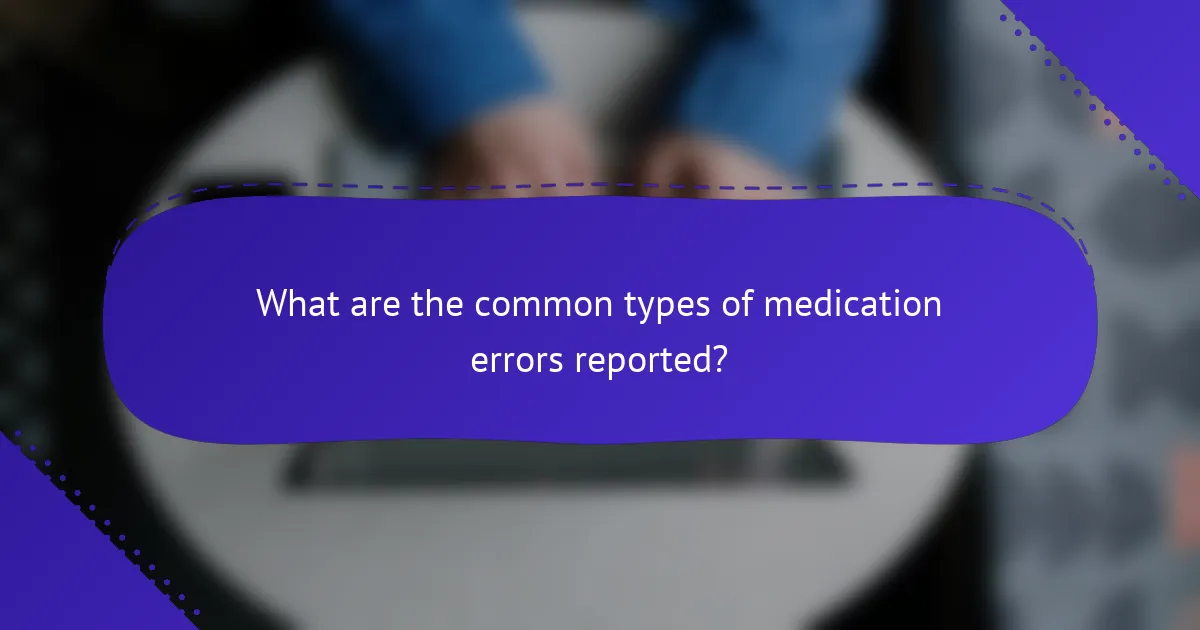
What are the common types of medication errors reported?
Common types of medication errors include dosage errors, wrong medication, and administration errors. These mistakes can lead to serious health consequences and highlight the need for careful medication management.
Dosage errors
Dosage errors occur when a patient receives too much or too little of a medication. This can happen due to miscalculations, misinterpretations of prescriptions, or incorrect unit conversions. For example, a doctor might prescribe a medication in milligrams, but the pharmacy dispenses it in grams, leading to a significant overdose.
To avoid dosage errors, always double-check the prescribed amount and confirm with a healthcare professional if there’s any uncertainty. Using standardized measuring devices can also help ensure accurate dosing.
Wrong medication
Wrong medication errors happen when a patient receives a medication that was not intended for them. This can result from look-alike or sound-alike drug names, or miscommunication between healthcare providers. For instance, a patient might be given a different medication that has a similar name to what was prescribed.
To prevent wrong medication errors, patients should always verify their medications with the pharmacist or healthcare provider, especially when picking up prescriptions. Keeping a personal medication list can also help track what is being taken.
Administration errors
Administration errors refer to mistakes made during the process of giving a medication to a patient. This includes errors such as incorrect timing, wrong route of administration, or failure to follow proper protocols. For example, a medication meant to be taken orally might be administered intravenously by mistake.
To minimize administration errors, healthcare providers should adhere to established protocols and check patient identification before administering any medication. Patients should also be encouraged to ask questions about how and when their medications should be taken.
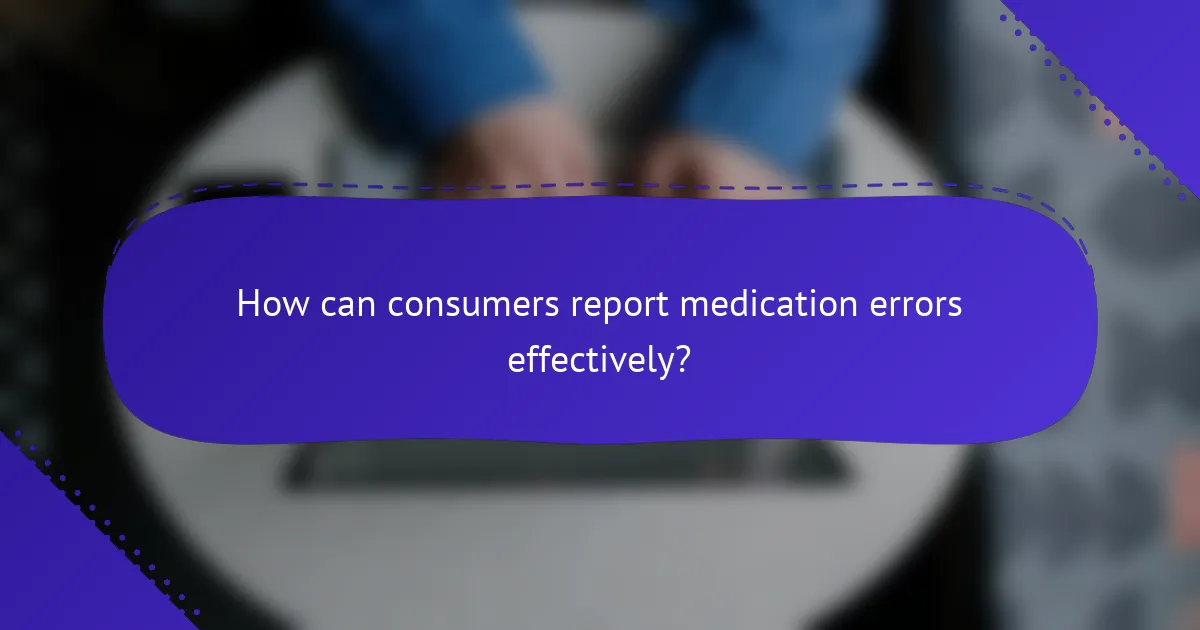
How can consumers report medication errors effectively?
Consumers can report medication errors effectively by utilizing various channels designed for this purpose. These include online reporting systems, direct communication with healthcare providers, and collaboration with patient advocacy groups.
Utilizing online reporting systems
Many countries offer online platforms where consumers can report medication errors. These systems are typically user-friendly and allow for quick submission of details regarding the error, including the medication involved and any adverse effects experienced.
When using an online reporting system, ensure you provide as much detail as possible. This can help healthcare authorities track trends and improve safety measures. Always check if the platform is officially recognized to ensure your report reaches the appropriate authorities.
Contacting healthcare providers
Another effective way to report medication errors is by contacting your healthcare provider directly. This can include your doctor, pharmacist, or any other healthcare professional involved in your care.
When reaching out, be clear and concise about the error. Describe what happened, when it occurred, and how it affected you. This information is crucial for your provider to address the issue and prevent future occurrences.
Engaging with patient advocacy groups
Patient advocacy groups can be valuable allies in reporting medication errors. These organizations often have established protocols for documenting and addressing such issues, and they can provide support throughout the reporting process.
Consider reaching out to a relevant advocacy group in your area. They may offer resources, guidance, and a platform to share your experience, which can help raise awareness and improve medication safety for others.
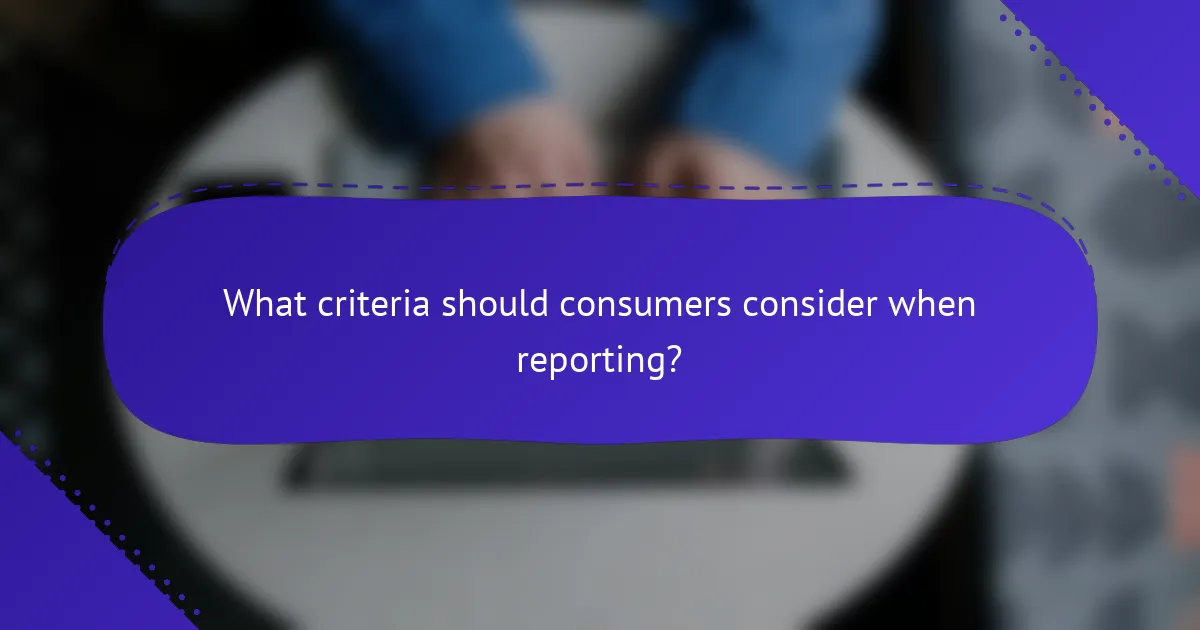
What criteria should consumers consider when reporting?
Consumers should consider accuracy of information, timeliness of reporting, and confidentiality concerns when reporting medication errors. These criteria ensure that the report is effective and contributes to improving medication safety.
Accuracy of information
Providing accurate information is crucial when reporting medication errors. This includes details such as the name of the medication, dosage, administration method, and any adverse effects experienced. Inaccurate information can lead to misunderstandings and hinder corrective actions.
When reporting, double-check all relevant details before submission. If possible, include any supporting documents or prescriptions that can verify the information you provide.
Timeliness of reporting
Timeliness is essential in medication error reporting, as prompt action can prevent further incidents. Reports should be made as soon as the error is identified, ideally within a few hours or days, depending on the severity of the situation.
Delaying a report can compromise patient safety and limit the ability of healthcare providers to address the issue effectively. Set reminders or use reporting tools to ensure you report errors quickly.
Confidentiality concerns
Confidentiality is a significant concern for consumers when reporting medication errors. It is important to understand how your information will be used and who will have access to it. Most reporting systems are designed to protect the identity of the reporter.
Before submitting a report, inquire about the confidentiality policies of the reporting system. Ensure that your personal information is safeguarded and that the focus remains on improving safety rather than assigning blame.
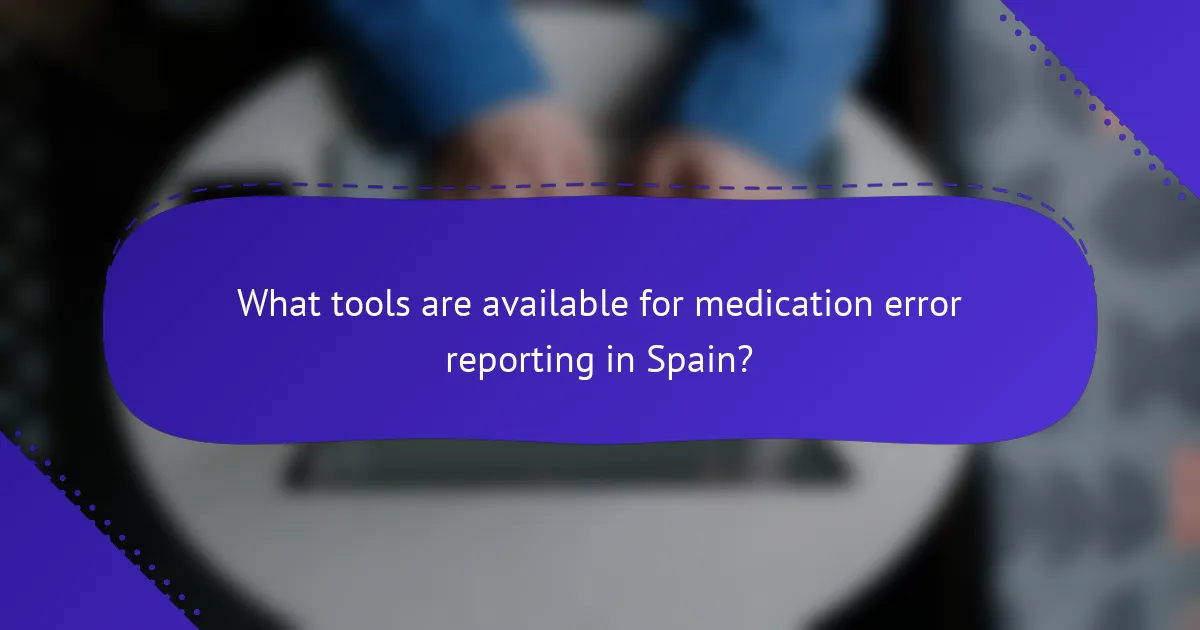
What tools are available for medication error reporting in Spain?
In Spain, several tools exist for reporting medication errors, including online platforms, dedicated hotlines, and mobile applications. These resources aim to facilitate the reporting process for healthcare professionals and consumers alike, ensuring that errors are documented and addressed effectively.
Online Reporting Systems
Spain has established online reporting systems that allow healthcare providers and patients to submit medication error reports easily. These platforms typically require users to fill out a form detailing the incident, which is then reviewed by health authorities. Examples include the Spanish Agency of Medicines and Medical Devices (AEMPS) website, which provides a user-friendly interface for submissions.
Dedicated Hotlines
In addition to online systems, Spain offers dedicated hotlines for reporting medication errors. These hotlines are staffed by trained professionals who can guide callers through the reporting process and provide immediate assistance. This option is particularly useful for individuals who may not have access to the internet or prefer speaking to someone directly.
Mobile Applications
Mobile applications have emerged as a convenient tool for reporting medication errors in Spain. These apps often include features that allow users to document incidents on-the-go, upload photos, and track the status of their reports. They are designed to enhance accessibility and encourage more individuals to report errors promptly.





